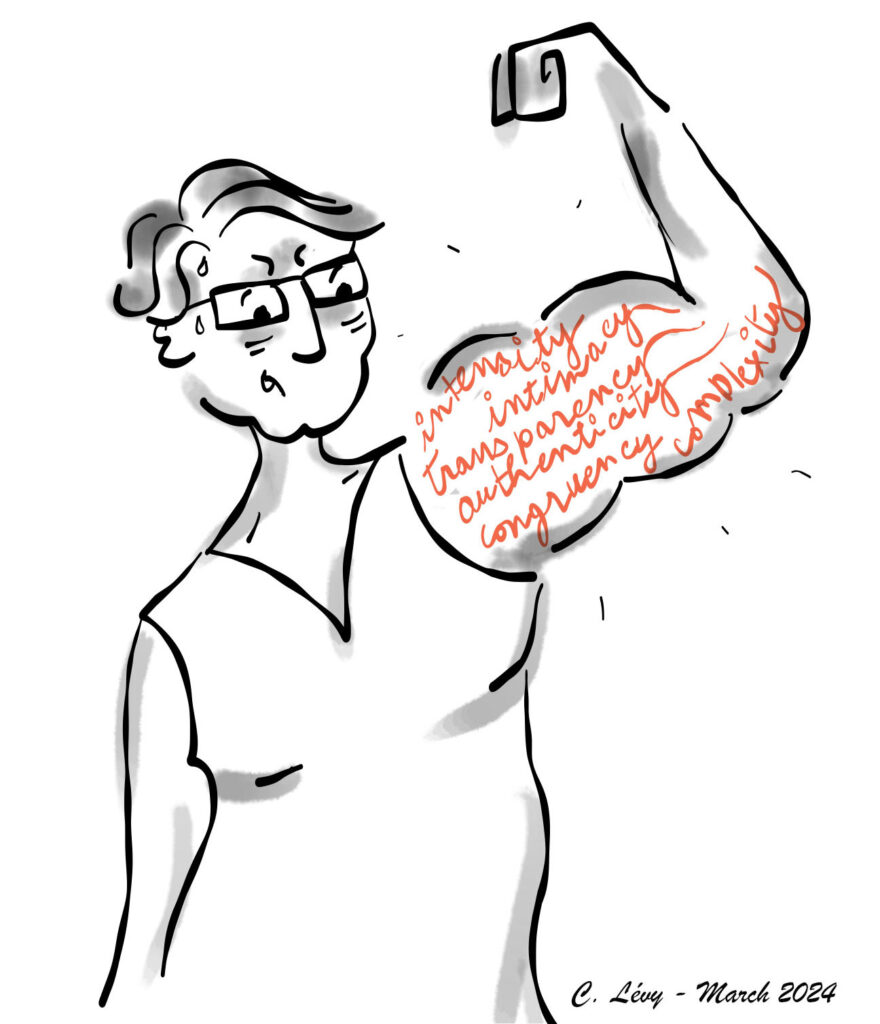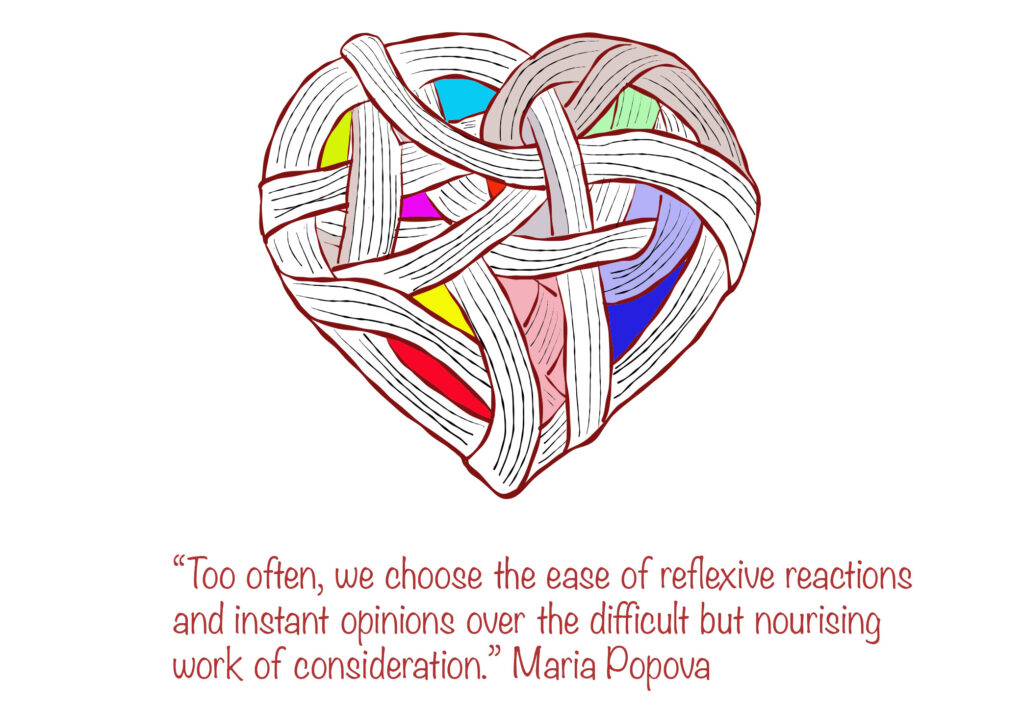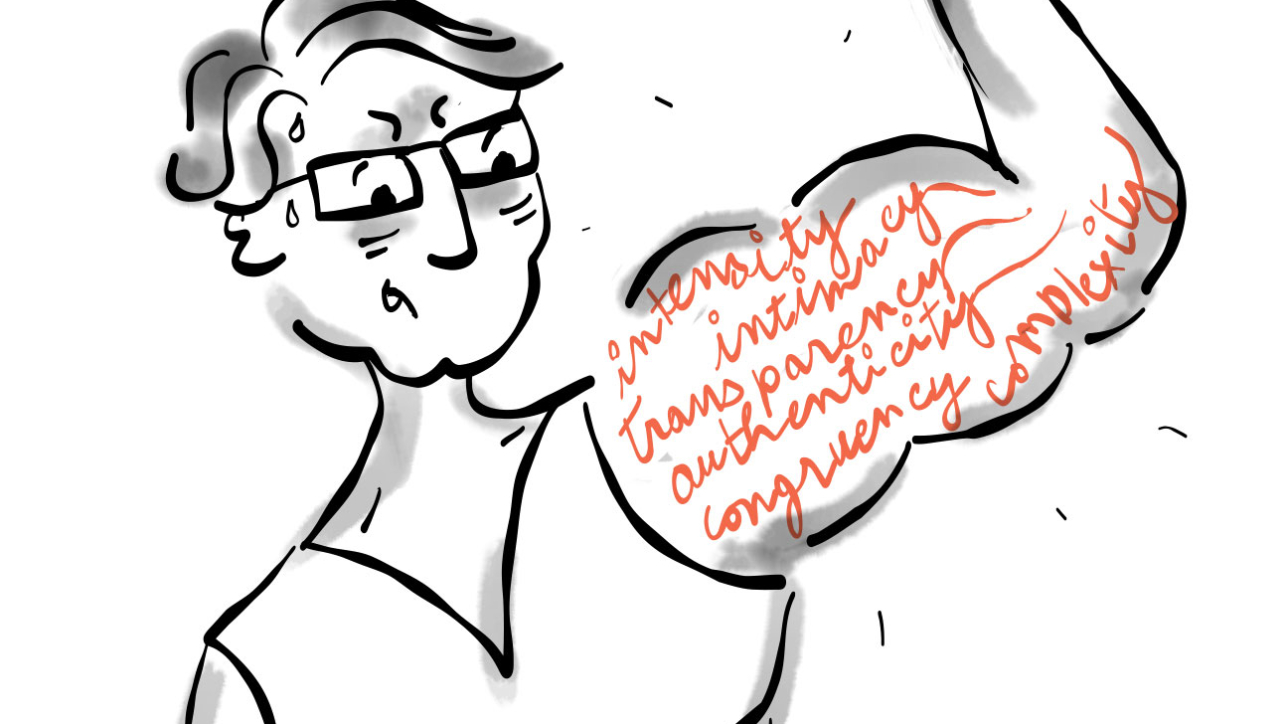
Occasionally, I find myself in this uncomfortable situation: I’m facilitating a team conversation that feels “icky,” off track. I wonder if I should stop the conversation, but the pace is going fast, and I assume participants know something I don’t. I don’t want to interrupt the flow, appear negative, or slow-minded. It’s not a bad conversation so far, but the ickiness persists. The conversation gets bogged down. Suddenly everyone seems dissatisfied! My instincts were right… I should have stopped the conversation.
Two takeaways:
- When I assume what others think without asking, it means that I’m uncomfortable with asking.
- If I’m uncomfortable asking, it means that I imperatively need to implement my intensity muscle.
The intensity muscle refers to the willingness and capacity to develop an increasing blend of comfort with discomfort. This is the golden rule: ask one more thing than I feel comfortable asking.
In this case, “Can we pause and reclarify the goals of the conversation?”
Although it’s not a difficult question to ask, it’s a disruptive one which has the risk of creating even more discomfort. In the heat of a conversation, a wait-and-see mode is much easier.
Typically, in the face of intensity and discomfort, we tend to automatically react with a fight, flight, or frozen response. Fight: we respond aggressively, attack, and escalate. Flight: we shut down, disengage, or change the subject. Freeze: we are paralyzed, we wait-and-see, and rationalize the inertia.
The concept of the intensity muscle was developed by Dr. Kenneth (Ken) V. Hardy with whom I had the great opportunity to co-facilitate a series of trainings on race equity, diversity, and inclusion (REDI). I was honored to bring my ego-work approach to Ken’s comprehensive and thoughtful framework. Participants were invited to reflect on their life and work experiences in the light of core assumptions about relationship, race, identity, societal norms, power, and privileges – complex and delicate subjects that take time, care, and a blend of comfort and discomfort.
I’m aware of the current anti-DEI movement coming from certain political trends. It is ironic that the argument against DEI trainings is that the content is “divisive.”
Of course, it is divisive and that is why we must address it.
Talking about race and identity can be complex, conflictual, and vulnerable. It challenges our view of the world, our blind spots, and our sense of inherent, untainted goodness. It carries pain, shame, and confusion. That’s why we never talk about these delicate subjects and remain stuck in a negative loop.
And yet, a vast majority of workers express support for DEI in the abstract. In 2023 polls, the majority of public opinion liked DEI initiatives – despite political backlash.
We all aspire to be treated respectfully and fairly. And within the right framework using the right skills, we also aspire to talk about the difficult subjects that weigh down our spirit. It can be liberating and fulfilling to truly engage in a conversation about:
- experiences of inequities or micro-aggression at work
- deep disagreements about politics or religion with friends and family
- dissatisfactions within our personal partnership regarding money management, diet, or sexuality
- fears about aging parents, or about the mental health of our teenagers

To build solid and meaningful relationships, and to constructively engage in difficult conversations, Dr Ken Hardy suggests flexing five other muscles inextricably connected to the intensity muscle:
The intimacy muscle refers to the ability to express vulnerability. It is the relational glue and underscores the importance of reciprocity – giving and receiving – in a relationship.
The transparency muscle refers to the willingness not only to show myself and to be seen, but also be open to receive feedback.
The authenticity muscle refers to the ability to “say what I mean and mean what I say.”
The congruency muscle refers to the ability to achieve compatibility and coherence between what I think, say, and exhibit behaviorally.
The complexity muscle refers to the ability to simultaneously hold two seemingly disparate ideas. I can see the good contained in the bad, and vice versa. I promote both/and in difficult conversations instead of either/or thinking.
We are living in intense times. It’s election year in the United States. 2024 is also the year with the most elections in the world in history!
Polarization – the lazy pathway to avoid being in genuine relationships – is everywhere. It ineluctably leads to rupture and violence. Most people don’t want that. I don’t want that. The alternative is the discipline and art of developing our relational muscles.
It takes regular effort, but it is never too late to be in good shape.







